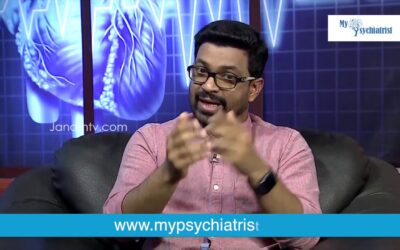Social anxiety disorder [also known as social phobia] is a mental health condition in which a person has excessive fear or symptoms of anxiety [palpitations, breathlessness, dizziness, tremors, nausea, mind going blank etc.] while in a social situation. They’re afraid of been judged, observed, being evaluated [negatively] or rejected. This fear is out of proportion to the context and interferes with the person’s daily activities including going to work, eating at a restaurant, using a public restroom, talking to others, attending social functions etc.
One in 10 people suffer from social phobia and women are more commonly affected than men. Such individuals are often labelled as shy, and in severe cases may end up being housebound. Some end up using addictive substances such as alcohol to reduce the symptoms of anxiety while handling social situations. They often end up taking jobs that are way below their potential, in attempts to avoid social interactions. The choices that they make in life also generally reflect this avoidant behaviour.
Although social anxiety disorder could run in families, a clear cause is yet to be identified. The symptoms are often worsened by misreading facial expressions of other people [thinking that the person is frowning when he’s not]. A lack of confidence in one’s own social skills [inability to hold conversations] could also contribute to the problem.
Social anxiety disorder generally tends to go unrecognized specially in Indians, more so in women because, shyness is considered a virtue. In such protected domestic environments, the disorder usually becomes evident only after the death of the husband when the woman is forced to fend for herself. Those with social anxiety usually report that they have always been extremely shy. The onset of the illness is hence difficult to a certain but usually happens in mid-teens. Most people delay seeking help until the symptoms are very severe.
Before making a diagnosis social anxiety disorder, your doctor may examine you to rule out medical illnesses that could mimic anxiety such as and thyroid disorders and certain drugs. Those with social anxiety have a higher risk of developing major depression and addictive substance use. Hence, your doctor would also evaluate you for these.
Based on the severity of your symptoms your doctor may treat you with psychotherapy alone or a combination of medications and psychotherapy. The medications may either be given to control the anxiety symptoms for an extended period if the condition is severe; or in certain mild cases, prophylactically to handle extremely stressful situations only. Psychotherapy often yields good results with improvements in social skills, and building confidence and self-esteem.
Social anxiety is often well managed through adequate treatment and persons can lead a fulfilling life when symptoms are controlled.



0 Comments